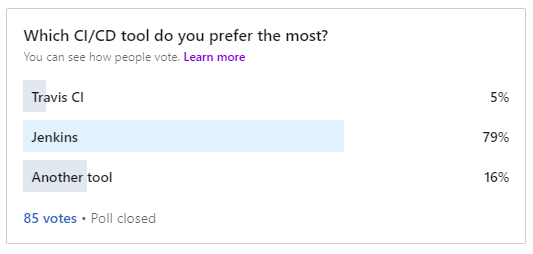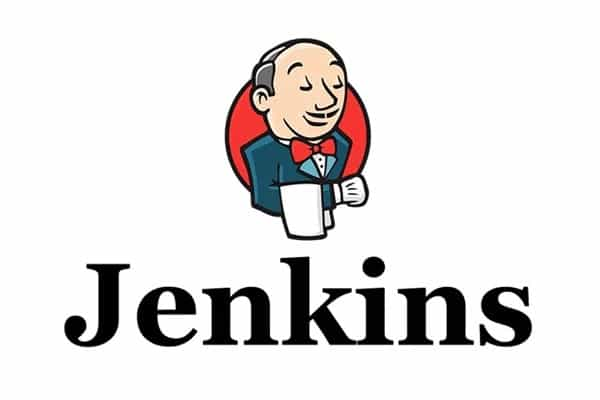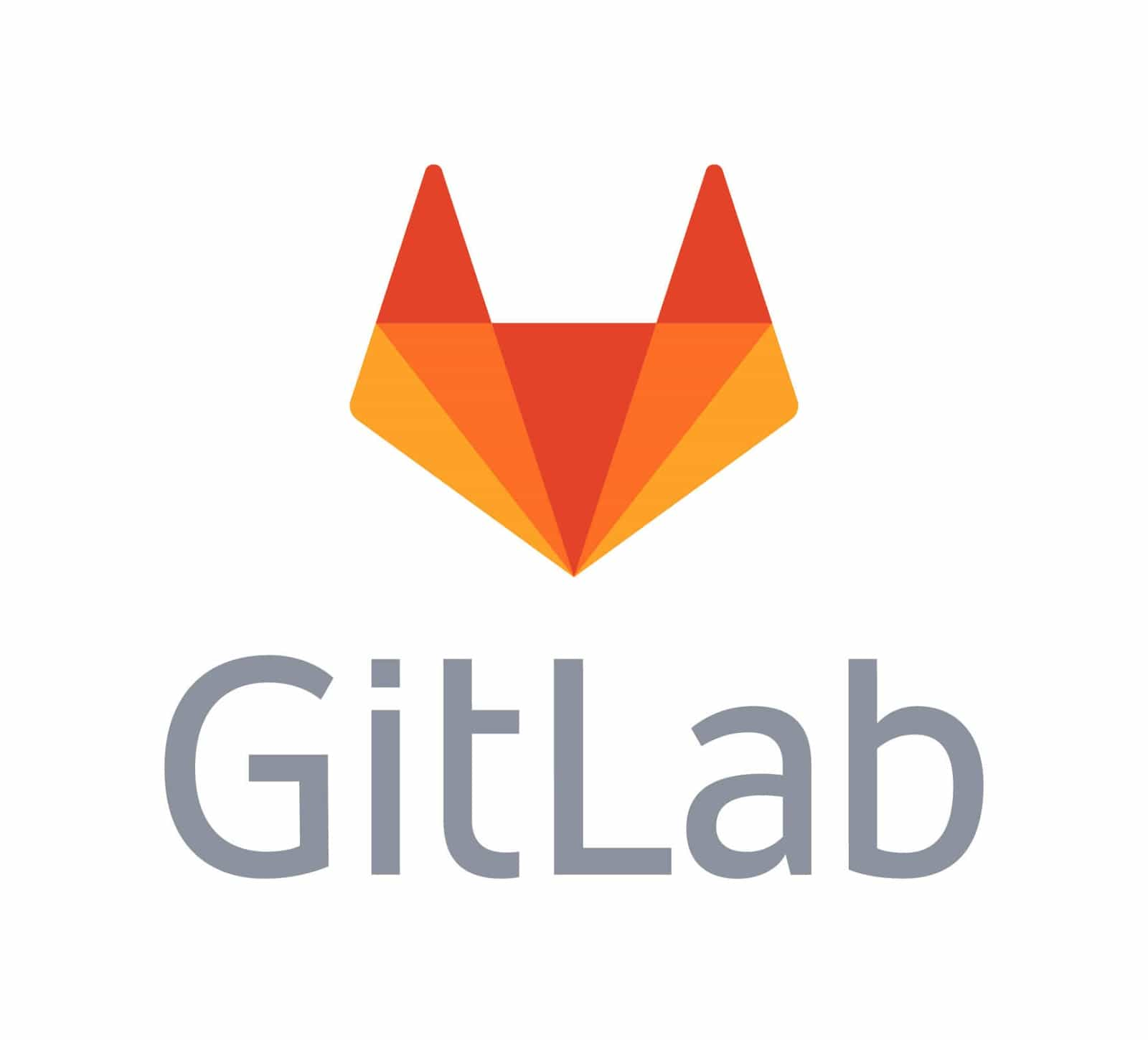Jenkins vs GitLab CI: Battle of CI/CD Tools
Rahul Jain
Posted On: August 11, 2020
![]() 137056 Views
137056 Views
![]() 18 Min Read
18 Min Read
This article is a part of our Content Hub. For more in-depth resources, check out our content hub on CI/CD Testing.
For the last decade or so, great advancement has been made in regards to Continuous Integration (CI) and Continuous Delivery (CD). The rise of DevOps testing has led to rapid demand for CI/CD tools. Existing solutions are consistently perking up with time and a myriad of new products or new versions are making their entrance into the QA world. When you have such prolific choices at hand, selecting the right tool can definitely get a little intimidating.
Amongst all the available CI/CD tools for testing, two tools that you should certainly consider are Jenkins and GitLab CI/CD. Jenkins has 16,000+ stars on GitHub whereas GitLab CI/CD has 2012. That’s 8 times more than GitLab CI/CD. However, these numbers aren’t the only thing one needs to look into while selecting a CI/CD tool. This is why in spite of the immense difference in stars, Jenkins vs GitLab CI/CD is having a neck to neck race over multiple review platforms as well.
Take G2 for instance, Jenkins has an average rating of 4.3 stars on G2 with 288 reviews while GitLab CI/CD has received 4.4 stars with 270 reviews on G2. It wouldn’t be wrong to claim that Jenkins vs Gitlab CI/CD is competing with each other on an equal footing. Interestingly, Jenkins was released in 2011 and is in the CI/CD business, it has been the preferred choice for testers. Yet ever since its launch in 2014, GitLab CI/CD has been making its way to the top with cutting edge features. We conducted a poll on social media as we went live with an article on Travis CI vs Jenkins.

The other tool that was mentioned the most was GitLab CI/CD. As a DevOps testing expert, you need to scrutinize these tools based on your project, budget, and other requirements. To help you out, I am going to do an in-depth evaluation of Jenkins vs GitLab CI/CD to help you make up your mind about the right CI/CD tool meeting your project requirements. Let’s start off with the basics.
Integrate and automate your Selenium test suites with GitLab CI on LambdaTest.
Introduction to Jenkins

Jenkins is a famous and extendable open-source CI/ CD tool for automation of deployments. Jenkins is written completely in Java and launched under an MIT license. It has a powerful set of features that can automate tasks related to building, test, deployment, integration, and release of the software. This automated CI/CD tools for testing is available for use on macOS, Windows, and diverse UNIX versions such as OpenSUSE, Ubuntu, Red Hat, and more. Besides installation by native installation packages, it can be installed as a standalone or as a Docker on any machine that includes Java Runtime Environment (JRE) installed.
There is also a sub-project by the Jenkins team called Jenkins X, which specializes in running a seamless pipeline with Kubernetes right out of the box. Jenkins X smartly integrates Helm, Jenkins CI/CD server, Kubernetes, and other tools to offer a prescriptive CI/CD tools pipeline with best practices built-in, like using GitOps to direct environments.

A plus point about using Jenkins is that the script is well structured, easily understandable, and quite readable. Around 1,000 plugins have been produced by the Jenkins team, allowing the application to intermingle with other familiar technology. Besides, it is also possible to use plug-ins, such as with Credentials Command. This makes it easy and feasible to add on hidden Authentication Credentials, etc into the script. Once the Jenkins pipeline starts running through, you also get to verify if the phases passed or failed and the total number of each phase. Yet, you won’t be able to check the status of the specific jobs in the graphical overview provided. However, what you can do is follow the progress of the jobs in the terminal.
Learn how to integrate LambdaTest Jenkins plugin with your Jenkins Freestyle project
Jenkins: Core Features
Jenkins is best known for its easy setup, automated build process, and the vast documentation it provides for the users. When it comes to DevOps testing, Jenkins is considered quite reliable and probably won’t have to monitor the entire build process which is not the case with other CI/CD tools. Let’s look at some of the most important features offered by Jenkins-
1. Free, Open Source and Easy Installation
Jenkins is easily available for macOS, Unix, Windows, platforms. It can be combined with Docker to bring high consistency and extra speed to automated jobs. It can also run as a servlet in Java containers such as Apache Tomcat & GlassFish. You will find a lot of support and documentation to guide throughout the installation process.
2. Broad Plugin Ecosystem
The plugin ecosystem of this particular tool is much more mature in comparison to other CI/CD tools. At present, there are 1500+ plugins offered by them. Since these plugins are ranging from language-specified development tools to build tools; it makes customization easy and lucrative. Hence, you would not be required to buy expensive plugins. Jenkins plugin integration is also available for a number of DevOps testing tools.
3. Easy Setup and Configuration
The setup and configuration procedures of this tool are quite easy, as only some steps are needed in the installation. The upgrading procedure of Jenkins is also trouble-free and straight-forward. Again the support documentation provided helps a lot in configuring the tool according to your requirement.
4. Helpful Community
As you know it is an open-source project with an abundant plugin ecosystem, all of the plugins and features are intelligently supported by a vast community contribution. The amazing community involvement that accompanies Jenkins is one of the major reasons that have helped with its maturity.
5. Offers REST API
Jenkins offers the RESTful Application Programming Interface for extensibility. The Jenkin’s remote-access API comes in three distinct flavors – Python, XML, & JSON with JSONP support. One of the pages in Jenkins site has descriptive documentation on Jenkins APIs that can aid in extensibility.
6. Supports Parallel Execution
Jenkins intelligently supports parallel testing. You can easily integrate it with dissimilar tools and get notifications if the build is successful or unsuccessful. Developers can even accelerate their test suites by executing multi-builds in parallel, across distinct virtual machines.
7. Easily Work Distribution
It can effortlessly run distributed work i.e. tasks run through a distinct machine without resulting in an impact on the GUI (Graphical User Interface). It is significant to note that only this specific tool can use the same instance on which it runs GUI associated tasks, as opposed to other CI/CD tools.
You might also like TeamCity vs. Jenkins: Picking The Right CI/CD Tool.
This Jenkins Tutorial for beginners and professionals will help you learn how to use Jenkins, one of the most popular CI/CD tools used in DevOps.
Introduction to GitLab CI/CD

Among all the CI/CD tools for testing, GitLab CI/CD is undoubtedly the newest one and the most admired choice. It is a free and self-hosted Continuous Integration tool built into GitLab CI/CD. GitLab CI/CD has a community edition and provides git repository management, issue tracking, code reviews, wikis, and activity feeds. Companies install GitLab CI/CD on-premise and connect it with Active Directory and LDAP servers for secure authorization and authentication.
Find out how to build an Automated Testing Pipeline With GitLab CI/CD & Selenium Grid. Here’s a video tutorial to help you better understand the process-
Formerly released as a standalone project, GitLab CI/CD was integrated into the main GitLab software with the GitLab 8.0 release in September 2015. A solo GitLab CI/CD server can manage more than 25,000 users and it is also likely to form a high availability setup with multi-active servers. GitLab CI/CD and GitLab are written in Ruby and Go and launched under an MIT license. GitLab CI/CD also provides planning, packaging, SCM, release, configuration, and scrutinizing in addition to CI/CD that other CI/CD tools are focused on.
GitLab CI/CD also provides repositories, thus the integration of GitLab CI/CD is quite simple and straightforward. When it comes to using GitLab CI/CD, the phase command comprises a series of stages that will be implemented or executed in the precise order. After implementation, each job is portrayed and configured with diverse options.
Each job is part of a phase and will automatically run parallel with other jobs in a similar phase. Once you do that, the jobs are configured and you are all set to run the GitLab CI/CD pipeline. The result will be illustrated later on and you will be able to check the status of every single job you specified inside a phase. That is how GitLab CI/CD is different from other CI/CD tools used in DevOps testing.
GitLab CI/CD: Core Features
GitLab CI/CD is one of the most loved CI/CD tools used for DevOps testing. GitLab CI/CD has strong documentation, easy control, good User Experience on its side. If you are new to GitLab CI/CD, I have listed down the main features of GitLab CI/CD that will help you know it better. Come take a look.
1. High Availability Deployments
It is widely used and one of the newest open-source CI/CD tools available. Installation as well as configuration for GitLab CI/CD is easy. It is a free and self-hosted CI tool built into GitLab. GitLab CI/CD gradually evolved as one of the most popular free CI/ CD tools used for automation of deployments.
2. Jekyll Plugins Support
Jekyll plugin is a static website generator with great support for GitLab Pages and it makes the build process simpler. Jekyll Plugins Support takes HTML files and Markdown and creates a completely static site based on your preference of layouts. One can easily configure most Jekyll settings, for example, your website’s plugins and theme, by editing your _config.yml file.
Now perform live interactive Jekyll testing of your Jekyll websites on LambdaTest.
3. Milestone Setting
Milestones setting in a tool is a great means to track issues, improve on a series of issues, and draw requests in a repository. You can easily assign project milestones to any issue or combine requests in that project barely or assign group milestones to issues or combine requests of any project in the group.
4. Auto-Scaling CI Runners
Auto-scaling GitLab CI runners can easily manage and save 90% on EC2 costs. This is truly essential, particularly for a parallel testing environment. Also, for organization level or project level runners this is usable across repositories.
5. Issue Tracking & Issue Shuffling
Due to its great issue tracking and issue shuffling features, GitLab is a preferred CI/CD tool for numerous open-source projects. It smartly allows you to parallel test pull requests and branches. For simple and trouble-free monitoring, the testing outcomes are displayed on the GitLab UI. Owing to the easy user interface, it is extra friendly to use when you compare it to Jenkins.
6. Manage Git Repositories With Access Controls
You can easily manage git repositories with great access permissions. You can easily grant write/ read access to collaborators on an individual repository, even members of the particular organization can have more granular access controls for the organization’s repositories.
7. Active Community Support
The active and progressive community is one of the major plus-points for GitLab CI/ CD. All the support is provided out-of-the-box and doesn’t require modification in additional plugin installation.
8. Code Reviews & Merge Requests
GitLab CI/ CD is not only used for building code but to scrutinize or review code as well. It allows improved collaboration with easy merge requests and merge management systems. There is support for more or less all version control systems & build environments. Loads of collaborative initiatives are implemented under the GitLab project that aid in the expansion of GitLab CI/ CD.
This GitLab Tutorial for beginners and professionals will help you learn how to use GitLab, one of the most popular CI/CD tools used in DevOps.
Jenkins vs GitLab CI/CD – Comparison Snapshot
Jenkins and GitLab, both well-known CI/CD solutions, come with distinct sets of features and capabilities. This thorough comparison explores the fundamental aspects of Jenkins and GitLab, helping you make an educated choice when selecting the best CI/CD solution for your projects. Here’s a comprehensive feature comparison between these two CI/CD tools.
| Feature | Jenkins | GitLab CI/CD |
|---|---|---|
| Open-source or Commercial | Open-source | Open-source |
| Product Type | Self-hosted/On-Premise | Self-hosted/On-Premise |
| Built-in CI/ CD | Jenkins support CI/ CD depends on the requirements | We don’t need to install anything for CI/ CD, it has a built-in feature |
| Unique feature | Plugins | AutoDevOps/Allows keeping CI & code management in the same place. |
| Type of product | Self-hosted/ on premise |
SaaS/ on-premise |
| Support / SLA | No official support available or SLAs. | Yes |
| Setup and Installation | Easy | Easy |
| Self-hosted option | Open-source software and self-hosting is the only way to use it. | Yes |
| Build Pipelines | Custom pipelines through Jenkins Pipeline DSL | Yes |
| Application Performance Monitoring | Does not offer the feature to analyze performance. | Will show performance metrics for all the deployed apps. |
| Ecosystem | 1000 community plugins | Yes |
| Comprehensive API | Has a comprehensive API feature available. | Offers an API for deeper integrations in software projects. |
| Particular language support: JavaScript | Yes | Yes |
| Integrations | Allows integrations with other tools (ie: Slack, GitHub). | Plenty of third party integrations accessible, most notably GitHub and Kubernetes. |
| CI/ CD Deployment Dashboard | Partially supports both the CI and CD feature in projects. | Single dashboard can be changed for each user based on the pipeline history & recent status in projects. |
| API | Yes | Yes,pProvides a REST API & a (new) GraphQL API |
| Code Quality | Provides code quality checks through Sonarqube plugin, plus different plugins can also be used to verify code quality. | Gitlab also provides a feature for scrutinizing the quality of code. |
Distinction between Jenkins vs GitLab CI/CD
Now that you have seen the Jenkins vs GitLab CI/CD feature comparison, it is time to find the differences between the two DevOps testing tools. These differences will help you understand the real reason behind the Jenkins vs GitLab CI/CD battle.
- With the aid of GitLab CI/CD, you can control Git repositories with total control over branches and several other facets to keep your code safe from sudden threats. However, in the Jenkins case, you can control repositories but up to a few extents only. It does not allow complete control over branches and other facets.
- Jenkins is “Hosted-Internally” and is a “free open-source” that’s the reason why coders prefer it. On the flip side, GitLab CI/CD is “Self-Hosted“ and “FREE” that is why developers prefer it more.
- In GitLab CI/CD, every single project has a tracker that will track the problem and carry out code reviews to improve efficiency. While in the Jenkins tool; it has changed set supports and a simple procedure for installation as well as configuration.
Jenkins vs GitLab CI/CD – Features Dissimilarities
I hope you understand both the sides of Jenkins vs GitLab CI/CD tools by now. To take this ahead, I have also listed down the major pros & cons associated with Jenkins vs GitLab CI/CD. I know that you have already made up your mind about the DevOps testing tool you are going to go with, this section will help intensify your belief in choosing the right CI/CD tools.
Pros of Jenkins
- Large plugin library
- Selfhosted i.e complete control over workspaces
- Easy debugging of runners therefore complete workspace control
- Easy to set up nodes
- Easy to deploy code
- Very good credentials management
- Quite flexible and versatile with its features
- Supports different languages
- Very intuitive
Cons of Jenkins
- Complex plugin integration
- Overhead for smaller projects as you have to set-up by yourself.
- Lack of analytics for overall tracking of pipelines.
Pros of GitLab CI/CD
- Better Docker integration
- Scaling runners is simple
- Parallel job execution within phases
- Chance of directed acyclic graph pipeline
- Very scalable as a result of concurrent runners
- Merge request integration
- Easy to add jobs
- Easy to handle conflict issues
- Good security and privacy policies
Cons of GitLab CI/CD
- Artifacts need to be defined and uploaded/downloaded for each job.
- Testing the merged state of a branch isn’t likely before actual merge happened.
- Stages within phases aren’t yet supported.
Jenkins vs GitLab CI/CD: Which CI/CD Tool Should You Prefer?
Both Jenkins and GitLab CI/CD have their own pros and cons and your final choice between the two CI/CD tools entirely depends upon the project requirements and specification. Each of these CI/CD tools has its own set of advantages, disadvantages and were released to accomplish exactly the same requirement: automating processes for CI/CD (continuous integration and delivery). Jenkins is for Continuous Integration whereas Gitlab CI/CD is for Code Collaboration and Version Control.
Apart from the salient features, you should also glance at the pricing lists and in-house proficiency while picking out the best CI/CD tools for DevOps testing.
Fun Fact: From a DevOps testing perspective, It doesn’t matter whether you choose Jenkins or GitLab CI/CD as our cloud Selenium Grid offers integrations with both CI/CD tools and many more. The best part of using LambdaTest for cross browser testing is that you can test and validate your new builds in the pipeline on 3000+ real browsers, their versions, and operating systems and speed up your testing once you have chosen the best DevOps testing tool.
You can also check out the rest of the LambdaTest CI/CD integrations.
You can integrate and automate your Selenium test suites with GitLab CI on LambdaTest.
Happy Testing!
100+ Free Online Tools From LambdaTest!
LambdaTest has come up with an index of 100+ free online tools for developers and testers. From HTML, XML, and JSON formatters to robust data generators, and hash calculators. LambdaTest’s free online tools are built to help engineering teams accelerate and be more productive with their daily activities.
Code Tidy
- JSON Prettify
- JSON Minify
- HTML Prettify
- HTML Minify
- JavaScript Minify
- CSS Minify
- CSS Prettify
- XML Minify
- XML Prettify
Data Format
- IDN Encode
- IDN Decode
- XML to JSON Converter
- JSON to XML Converter
- BCD to Decimal
- HEX to Decimal
- Decimal to BCD
- UTF8 Decode
- UTF8 Encode
- HEX to RGB Converter
- RGB to HEX Converter
- HTML to Markdown Converter
- Markdown to HTML Converter
- Decimal to Gray Code Converter
- Gray Code to Decimal
- URL Decode
- URL Encode
- Base64 Encode
- Base64 Decode
- Text to HTML Entities Converter
- HTML Entities to Text Converter
Random Data
- Random JSON Generator
- Random XML Generator
- Random CSV Generator
- Random YAML Generator
- Placeholder Image Generator
- Random Binary Generator
- Random Character Generator
- Random Color Generator
- Random Date Generator
- Random Decimal Fraction Generator
- Random Decimal Generator
- Random GUID Generator
- Random HEX Generator
- Random Octal Generator
- Random IP Generator
- Random MAC Generator
- Random Number Generator
- Random Paragraph Generator
- Random Password Generator
- Random Time Generator
- Random UUID Generator
- Random Sentence Generator
- Random String Generator
- Random Word Generator
- Random Data from RegEXP
- Test Data Generator
- Lorem Ipsum Generator
- Credit Card Number Generator
- QR Code Generator
- Random Byte Generator
Security Tools
- Hash Calculator
- Hash MAC Generator
- CRC32 Hash Calculator
- CRC32B Hash Calculator
- Ripe MD 128 Hash Calculator
- Ripe MD 160 Hash Calculator
- Ripe MD 256 Hash Calculator
- Ripe MD 320 Hash Calculator
- MD2 Hash Calculator
- MD4 Hash Calculator
- Adler32 Hash Calculator
- Gost Hash Calculator
- Whirlpool Hash Calculator
- MD5 Hash Calculator
- SHA1 Hash Calculator
- SHA256 Hash Calculator
- SHA384 Hash Calculator
- SHA512 Hash Calculator
Utils
- Find and Replace String
- HTML Escape
- HTML Unescape
- Difference Checker
- Shuffle Letters
- Shuffle Text Lines
- Sorting List
- Split Your String
- Text Lowercase
- Text Uppercase
- Text Repeater
- Text Rotator
- Character Count
- Word Count
- Lines Count
- Sentence Count
- URL Parse
- JSON Escape
- JSON Unescape
- Extract Text from HTML
- Extract Text from JSON
- Extract Text from XML
- Strip HTML
- JSON Validator
Got Questions? Drop them on LambdaTest Community. Visit now















